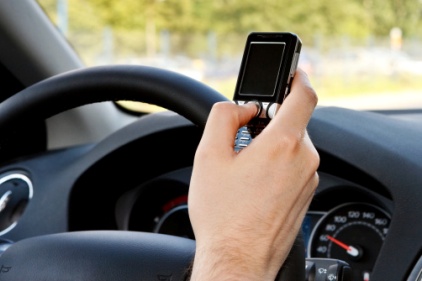Public ready for stiffer penalties for texting while driving

 New findings from a National Safety Council public opinion poll indicate 73% of respondents think there should be more enforcement of texting laws, while only 22% said the current level of enforcement is fine.
New findings from a National Safety Council public opinion poll indicate 73% of respondents think there should be more enforcement of texting laws, while only 22% said the current level of enforcement is fine.
When asked what type of penalties they’d like to see, 52% of poll participants chose penalties including a point system that could lead to the loss of a driver's license or increased insurance costs, 51% were in favor of different levels of penalties for first vs. repeat offenses and half thought large monetary fines should be used.
“For years, there has been widespread opposition to texting behind the wheel,” said NSC president and CEO Deborah Hersman. “Today, the polls show the public is behind stronger penalties because most people recognize that it will take more than awareness campaigns to stop this dangerous behavior.”
Currently, no state has passed a law banning all cell phone use while driving. Forty-four states plus the District of Columbia ban texting for all drivers, and 13 states and the District of Columbia have laws banning handheld driver cell phone use.
Contrary to popular belief, the brain does not truly multi-task. More than 30 studies show hands-free devices are no safer than handheld as the brain remains distracted by the cell phone conversation. NSC estimates 26% of all crashes involve cell phone use while driving. Talking on a cell phone, either hands-free or handheld, is estimated be involved in 21% of crashes – with an additional 5% for texting.
Help put an end to cell phone distracted driving with these tips:
- Make a personal commitment to drive cell free
- Turn your phone off or put it on silent while driving so you are not tempted to answer it
- Speak up when you are in the car with someone who uses a cell phone while driving – ask if you can do it for them, or if it can wait
- Change your voicemail message to reflect that you are either away from your phone or driving, and that you’ll call back when you can do so safely
- If you are talking to someone who you know is driving, tell him/her to hang up and call you later
National Safety Month encourages safe behaviors to prevent the leading causes of unintentional injuries and deaths. The Council’s National Safety Month campaign “Safety: it takes all of us” includes free downloadable materials to help spread important safety messages on cell phone use while driving. Visit nsc.org/nsm to get involved.
About the National Safety Council
Founded in 1913 and chartered by Congress, the National Safety Council, nsc.org, is a nonprofit organization whose mission is to save lives by preventing injuries and deaths at work, in homes and communities, and on the road through leadership, research, education and advocacy. NSC advances this mission by partnering with businesses, government agencies, elected officials and the public in areas where we can make the most impact – distracted driving, teen driving, workplace safety, prescription drug overdoses and Safe Communities. Safety+Health magazine, the Council’s flagship publication, is a leading source of occupational safety and health information.
Source: NSC press release
Looking for a reprint of this article?
From high-res PDFs to custom plaques, order your copy today!


